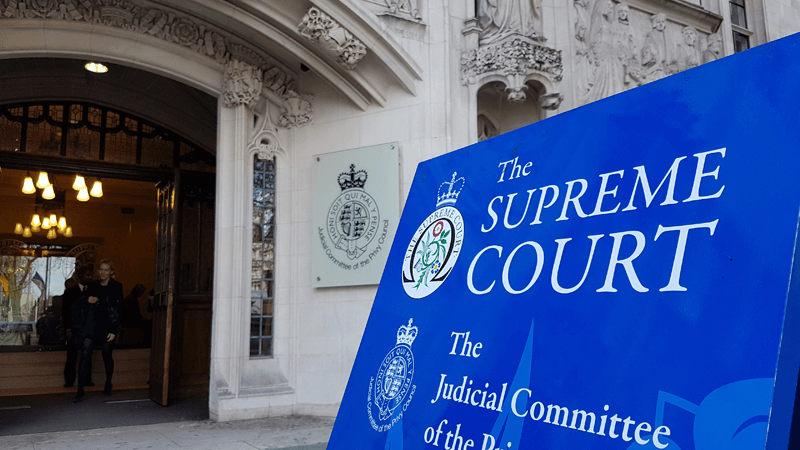The Supreme Court has refused to hear the case of a man who wants to be allowed help to kill himself.
Noel Conway suffers from motor neurone disease and has limited movement, and so he wants the courts to allow him to die with medical assistance.
Assisting a person to kill themselves is illegal and anyone breaking the law faces up to 14 years in prison. If judges had heard the case and ruled in Mr Conway’s favour, they could have used the case to strong-arm Parliament into legalising assisted suicide.
Care Not Killing
The judges explained their decision not to hear the case, which was rejected by the Court of Appeal in June, by saying only Parliament had authority to change the law.
Care Not Killing’s Dr Peter Saunders welcomed the news, saying: “The judges, parliamentarians, doctors and disability rights groups are all in agreement – that the safest law is the one we currently have.
“It carefully balances an individual’s rights with the need to protect vulnerable people, who could feel pressured into ending their lives.
“We have seen in the US states of Oregon and Washington that the fear of becoming a financial, or care burden is cited by more than half of those choosing to end their lives.”
’Disturbing developments’
He added that there have been “disturbing developments” in other parts of the world where safeguards have been removed.
“In Holland and Belgium, a law introduced to alleviative the suffering of mentally competent adults is routinely used on non-mentally competent adults and even children.
“This is why in this area the blanket ban is the right approach and we welcome the Supreme Court’s decision to reject this dangerous change.”
Protections
He told Premier a law permitting assisted suicide would inevitably lead to pressure being placed on vulnerable people to end their lives “so as not to be a burden to others”.
He said the current blanket ban especially protects those who are elderly, sick, disabled or depressed.
In 2015, Parliament rejected a Bill brought by Labour MP Rob Marris to legalise assisted suicide. MPs voted against the Bill by 330 votes to 118.


